Bedřich Smetana
The Significance of His Work
With his work, Bedřich Smetana (1824–1884) laid the foundation for modern Czech music and raised it to a level comparable to that of the surrounding world. As a true patriot, but also an artist of European stature, he wanted his work to combine the needs and ideas of a fledgling national culture with the latest tendencies in European music. This often overstepped local ideas of what national music should be. However, he managed to include these as elements of his own original style, which the Czech public accepted as its own national musical style during his lifetime. Smetana’s artistic legacy fundamentally helped create a sense of Czech national identity and is an essential component of our cultural heritage.
A selected list of Bedřich Smetana’s most important works
Bedřich Smetana composed eight operas (the ninth remains unfinished), the most performed of which is The Bartered Bride, and many piano, chamber, vocal and orchestral works. Smetana’s cycle of symphonic poems, My Country, is the opening concert for the Prague Spring music festival. Each year in Litomyšl, the national festival of Smetana’s Litomyšl is held in honor of the composer.
In the selected list of his most important works, the first name given is the one that Bedřich Smetana chose for the piece.

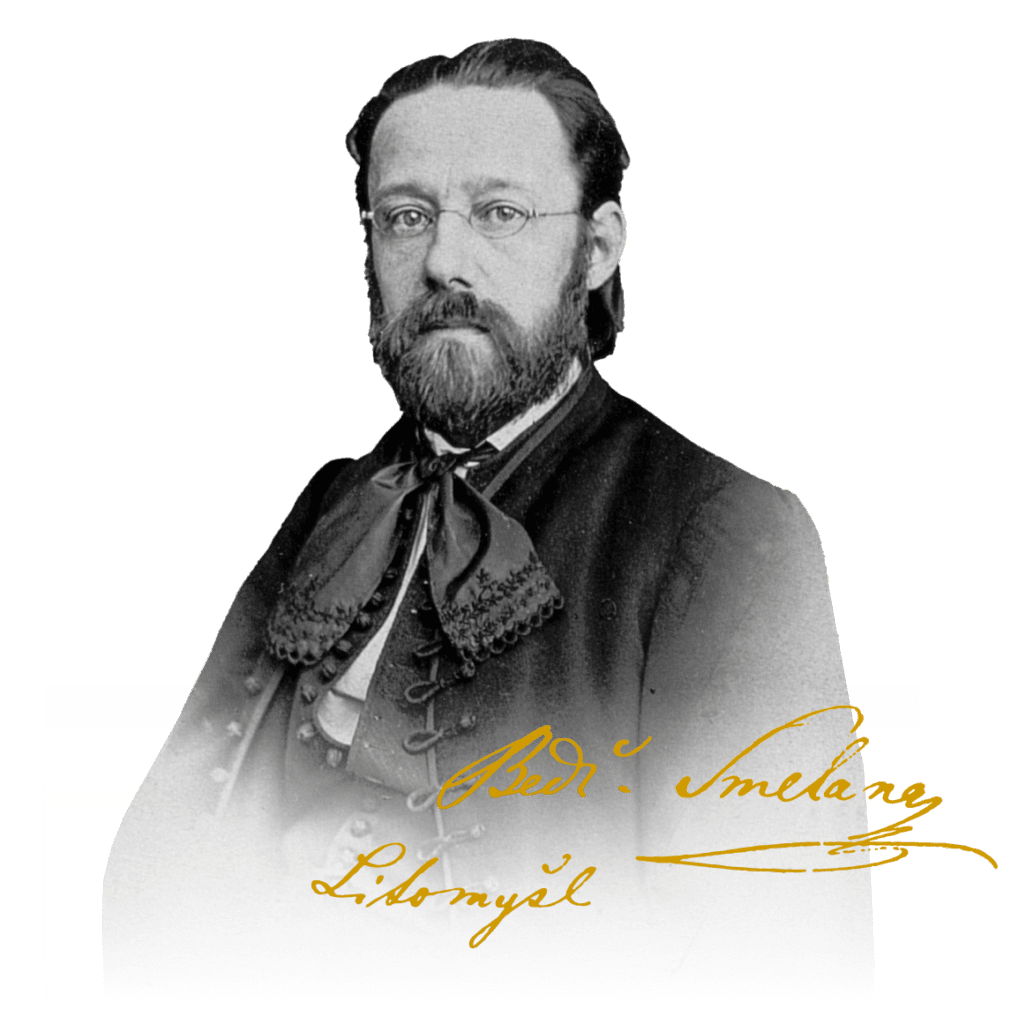
1824
Bedřich Smetana was born
March 2, 1824
1840
Louisen-Polka
(Louisina polka)
Georginen Polka
(Jiřinková polka)
1843
Erinnerung an Pilsen
(Vzpomínka na Plzeň) (polka)
1844
Bagatelles et Impromptus
(Bagetely a impromptus) (piano cycle)
1848
Six morceaux caractéristiques, Op. 1
(Šest charakteristivkých skladeb, op. 1) (piano cycle)
1854
Trois Polkas de Salon, Op. 7
(Tři salonní polky, op. 7)
Trois Polkas poétiques, Op. 8
(Tři poetické polky, op. 8)
Triumph-Symphonie
(Triumfální symfonie)
1855
Trio g moll
March 2, 1824
1857
Skizzen, Op. 4-5
(Črty, op. 4 a 5) (piano cycle)
1858
Richard III.
(symphonic poem)
1859
Wallenstein Lager
(Valdštýnův tábor) (symphonic poem)
1861
Hakon Jarl
(symphonic poem)
1863
Braniboři v Čechách
(opera)
1866
Prodaná nevěsta
(opera)
1867
Dalibor
(opera)
1872
Libuše
(opera)
1974
Dvě vdovy
(opera)
in autumn 1874 Bedřich Smetana became deaf
1875
Má vlast – Šárka, Z českých luhů a hájů
(cycle of symphonic
poems)
Rêves
(Sny) (piano cycle)
1876
Hubička
(opera)
Smyčcový kvartet e-moll „Z mého života”
1877
České tance I – Polky
1878
Tajemství
(opera)
1879
České tance II
Večerní písně
1882
Čertova stěna
(opera)
1883
Pražský karneval (1. část)
(symphonic poem)
Smyčcový kvartet d moll
1884
Viola
(opera – not finished)
Bedřich Smetana died on May 12, 1884
His Life
A famous composer, conductor, piano virtuoso, teacher, and founder of Czech national opera, he was born to Barbora and František Smetana in the castle brewery in Litomyšl on March 2, 1824. František had been leasing the brewery from the Valdštejns, which is why the family was living in the brewery’s staff apartment.
From 1829 until 1831, young Bedřich went to the local Piarist school. He had been around music since early childhood. His father, František, was himself an enthusiastic musician and a member of an amateur quartet. He acquired a violin for his son and had someone teach him to play the piano. Six-year-old Bedřich performed for the first time as a pianist on October 4, 1830 at a musical performance given by Litomyšl’s philosophy students. He was later invited by the Valdštejns to give concerts at the castle. Bedřich’s first attempts at composing also came from this period. In 1831, the Smetanas moved to Jindřichův Hradec, where the composer’s father rented the local brewery.
When Bedřich finished his secondary school studies, he resisted his father’s ambition for him to become a civil servant and conclusively decided to become a professional musician. In 1856, he left for Gothenburg in Sweden, where he worked as a music teacher and the director of a local music society. In 1861, he returned to Prague, taught music there, and became the Provisional Theater’s principal opera conductor. He gave up this position only in 1874 on account of an illness that caused him to become completely deaf. In the summer of 1876, he left for his daughter Žofie’s home in Jabkenice. Deafness did not impair his creative abilities. As he was no longer burdened by work obligations, he devoted himself intensively to composing. Nearly one third of his life’s work was created in Jabkenice, including many important pieces.
Bedřich Smetana died in Prague on May 12, 1884.
His Life
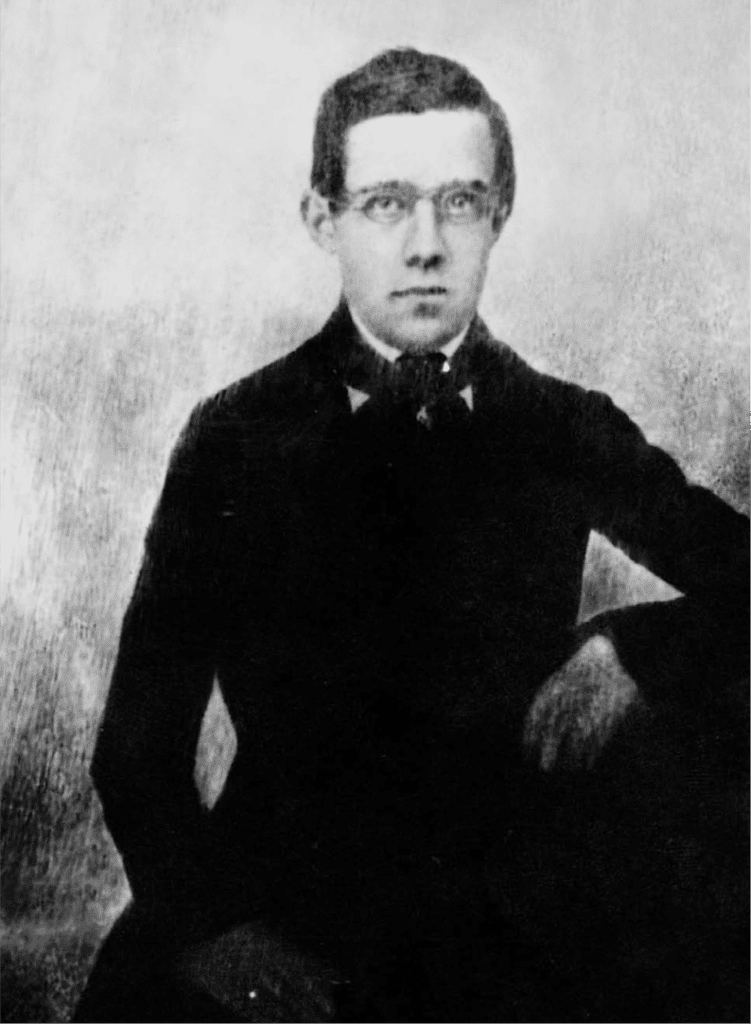
The oldest existing photograph of B. Smetana was created using the daguerreotype technique around 1843, when he was studying at the grammar school in Pilsen.
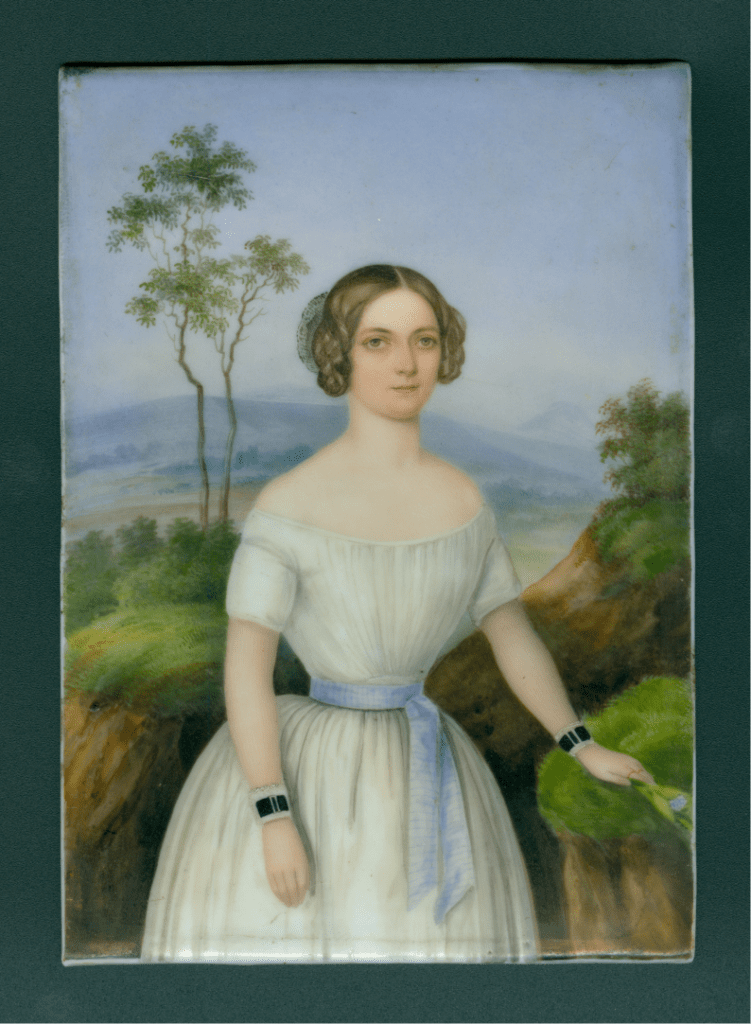
Kateřina Kolářová (1827–1859), B. Smetana’s first wife; they were married in 1849.
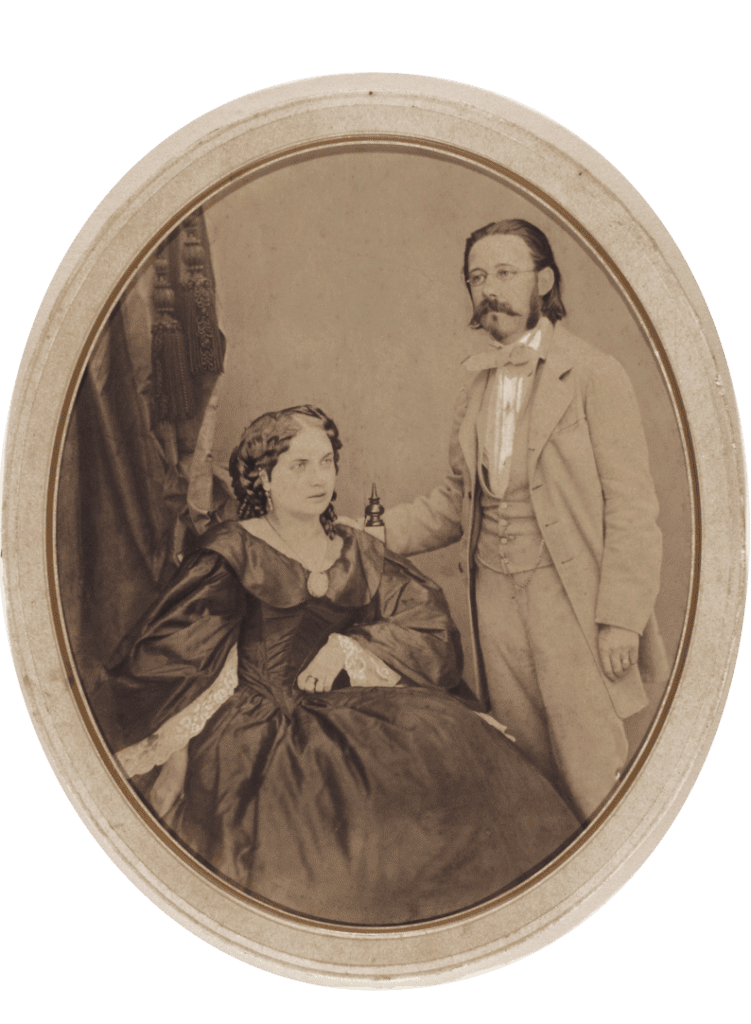
Bedřich Smetana with his second wife, Bettina Ferdinandiová (1840–1908); they were married in 1860.
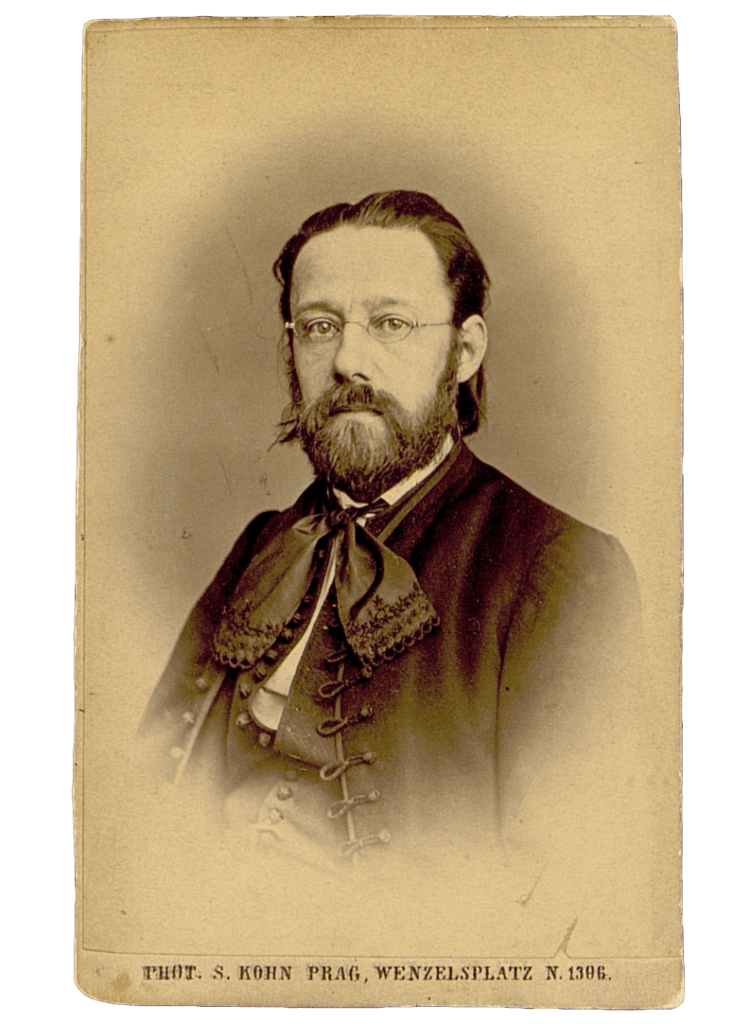
Bedřich Smetana, circa 1863
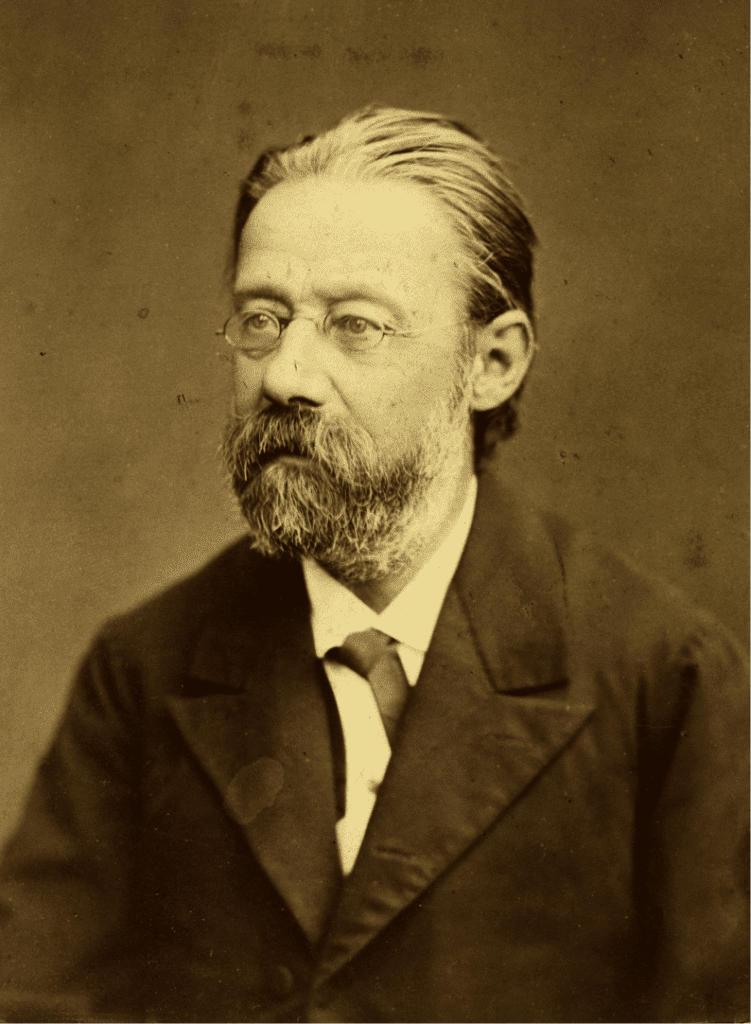
A studio photograph of Bedřich Smetana, taken during his visit to Litomyšl in 1880.










